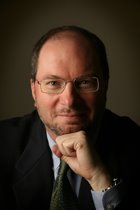Blackout's bass player wins Thelonius Monk Award
Stefon Harris and Blackout -- outstanding young jazz artists -- perform selections from their critically-acclaimed CD release, Urbanus, tonight (Friday, October 30th) at Clayton State University's Spivey Hall. Show time is 8:15 PM (one 90-minute set, no intermission), and tickets available at the door. (From Spivey Hall's website homepage, click on the picture of Harris & Blackout to learn more about what's in store.)
Ben Williams, Blackout's bass player, is the 2009 winner of the prestigious Thelonius Monk International Bass Competition. The New York Times ran the following news item about the competition. The award includes a cash award of $20,000. Take a look at the panel of judges (!!) -- major musicians all.
Spivey Hall is proud to welcome these extraordinarily talented jazz artists to Atlanta, who have just finished another successful run at Dizzy's Club Coca-Cola for Jazz at Lincoln Center.
October 11, 2009, 11:25 pm — Updated: 1:29 pm
Thelonious Monk Competition Winner Announced
By Ben Ratliff
The winner of the 2009 Thelonious Monk International Bass competition is Ben Williams. Mr. Williams, 24, originally from Washington, D.C. but now a strong and sought-after musician in New York, is a member of Blackout, Stefon Harris’s hip-hop-influenced band. He has also performed recently with groups led by Marcus Strickland (you can hear him on Mr. Strickland’s album “Idiosyncrasies”) and Jacky Terrasson.
He won in Sunday night’s finals, playing Oscar Pettiford’s “Tricrotism,” with a rhythm section including the pianist Geoffrey Keezer and the drummer Carl Allen, and Juan Tizol’s “Caravan,” with the singer Dee Dee Bridgewater joining the group.
Second and third place went to two other adopted New Yorkers: Joe Sanders, 25, originally from Milwaukee, and Matt Brewer, 26, from Oklahoma City.The annual competition (this was the 22nd edition) focuses on a different instrument each year. This year, 15 contestants on acoustic bass played for 12 minutes each at Baird Auditorium at the Smithsonian, in front of a panel of judges including Charlie Haden, Dave Holland, Bob Hurst, Christian McBride, and John Patitucci. The winner was announced after the concert and finals at the Kennedy Center in Washington. The first prize is $20,000, to go toward college-level music scholarships, and a recording contract with Concord Records.
You can hear Mr. Williams with Stefon Harris and Blackout on the band’s recent album, “Urbanus,” or during its run of shows Oct. 22-25 at Dizzy’s Club Coca-Cola in New York, www.jalc.org/dccc.
Ben Williams, Blackout's bass player, is the 2009 winner of the prestigious Thelonius Monk International Bass Competition. The New York Times ran the following news item about the competition. The award includes a cash award of $20,000. Take a look at the panel of judges (!!) -- major musicians all.
Spivey Hall is proud to welcome these extraordinarily talented jazz artists to Atlanta, who have just finished another successful run at Dizzy's Club Coca-Cola for Jazz at Lincoln Center.
October 11, 2009, 11:25 pm — Updated: 1:29 pm
Thelonious Monk Competition Winner Announced
By Ben Ratliff
The winner of the 2009 Thelonious Monk International Bass competition is Ben Williams. Mr. Williams, 24, originally from Washington, D.C. but now a strong and sought-after musician in New York, is a member of Blackout, Stefon Harris’s hip-hop-influenced band. He has also performed recently with groups led by Marcus Strickland (you can hear him on Mr. Strickland’s album “Idiosyncrasies”) and Jacky Terrasson.
He won in Sunday night’s finals, playing Oscar Pettiford’s “Tricrotism,” with a rhythm section including the pianist Geoffrey Keezer and the drummer Carl Allen, and Juan Tizol’s “Caravan,” with the singer Dee Dee Bridgewater joining the group.
Second and third place went to two other adopted New Yorkers: Joe Sanders, 25, originally from Milwaukee, and Matt Brewer, 26, from Oklahoma City.The annual competition (this was the 22nd edition) focuses on a different instrument each year. This year, 15 contestants on acoustic bass played for 12 minutes each at Baird Auditorium at the Smithsonian, in front of a panel of judges including Charlie Haden, Dave Holland, Bob Hurst, Christian McBride, and John Patitucci. The winner was announced after the concert and finals at the Kennedy Center in Washington. The first prize is $20,000, to go toward college-level music scholarships, and a recording contract with Concord Records.
You can hear Mr. Williams with Stefon Harris and Blackout on the band’s recent album, “Urbanus,” or during its run of shows Oct. 22-25 at Dizzy’s Club Coca-Cola in New York, www.jalc.org/dccc.

